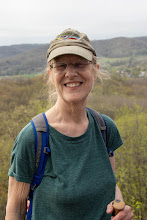With the adoption of Common Core State Standards in the vast majority of states, youth librarians are looking at and thinking hard about the impact for public libraries of this sweeping educational change. The trepidation some feel is palpable. Do we need to change our approach, our collections, or the manner in which we work with our schools and families?
While I don't have all the answers, I am fairly sanguine about this educational change. I have been working through various reading paradigms (Reading Recovery! Fountas and Pinnell! Lexile Levels!) throughout my career. I have adapted to whatever my local districts have adopted - I figure it's my job to connect kids and books and that's what I do with a joy and with a vengeance.
Not for me the intricate educationalese. I am the big picture person at the public library that listens to the query and the quest and provides just the right resources for the seeker. CCSS is no different in my opinion.
I took part in an unconference focus group on CCSS at the SLJ Think Tank on April 5 in New York. I was reassured in my thoughts during that hour. This group discussed what CCSS means to public libraries and came up with a helpful array of visions, solutions and ideas to help us navigate through the sea change.
My take-aways?
- As public librarians, while we need to be aware of the standards, we do not necessarily have to KNOW the standards to be effective in our reader's advisory and recommendations.
- As a corollary, public libraries don't need to be schools or function on that level to support CCSS. We are and remain an access point for materials.
- We are children's literature experts and, as such, can connect kids and school staff with great fiction and non-fiction books on multiple subjects and levels.
- Don't get lost in lists of exemplars and booklists that are part of CCSS support materials. Often these titles are outdated and there as examples rather than a guide for purchase.
- If you have been developing an excellent information collection that has strong narrative or literary non-fiction (think of many excellent and award winning nonfiction by authors like Freedman, Adler, Sheinkin, Kerley, Sayre and more), you are ready.
- If your non-fiction collection is weak, make the case in light of CCSS for increased budget money to strengthen it.
- Communication with local schools to be aware of changes in assignments for grade levels (for instance, biography taught in 2nd grade rather than 5th grade; space science addressed in 3th grade rather than 4th grade) helps with collection building to meet the needs of community kids. If you can't get the information from busy librarian/classroom staff, reach out to the Director of Curriculum to update you.
- Support of school media colleagues and school staff can be as simple as keeping dialog open and asking your colleagues how you can support them.
- Seek out collaborative learning opportunities with your school colleagues or ask to attend some of their meetings to bring you up to speed.
- Consider STEAM and STEM programs that connect kids to amazing non-fiction that opens up the wonder of these books. It connects you to Common Core in a fun way. Abby Johnson wrote an American Libraries column on this and Amy Koester at the Show-Me Librarian has been blogging about outstanding science programs for some time.
- Browse the beginning of the excellent Information Fluency Continuum document, a librarian's perspective based on Barbara Stripling's 2003 work.
- Look at Mary Ann Cappiello's Teaching with Text Sets for another perspective on how CCSS is approached.
Photo courtesy of Pixabay


No comments:
Post a Comment